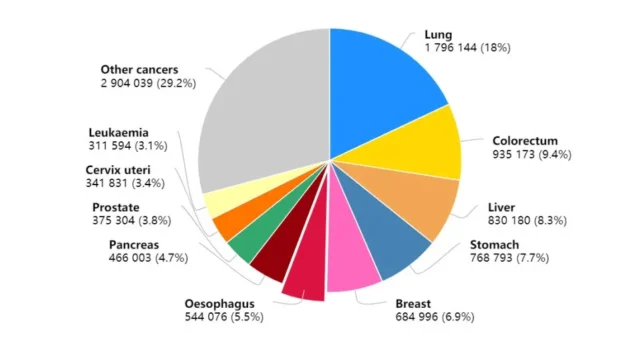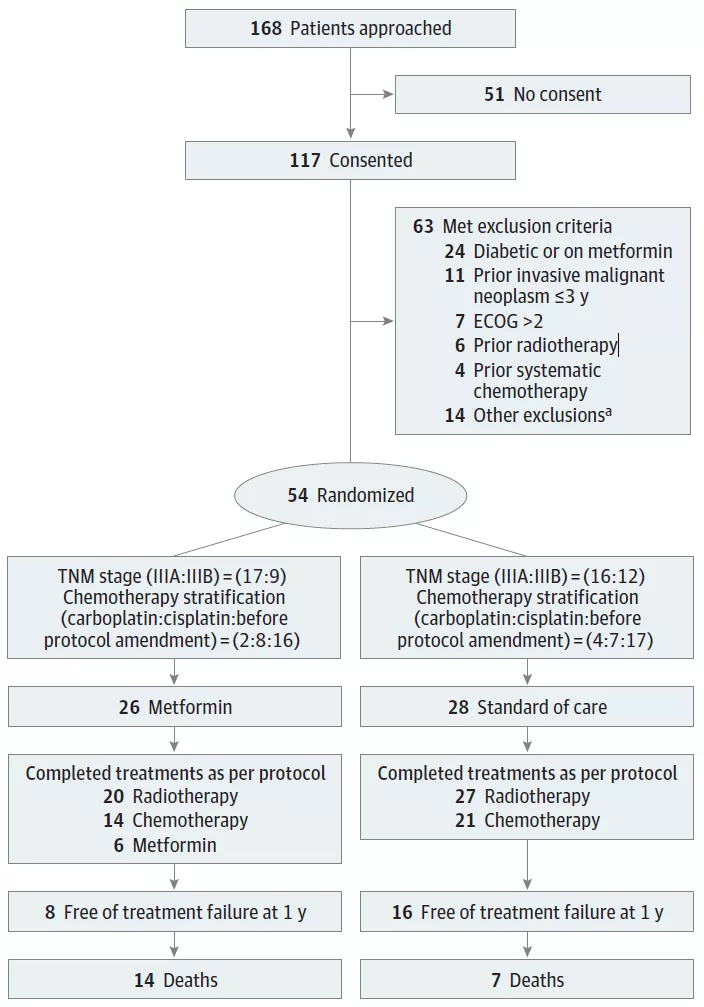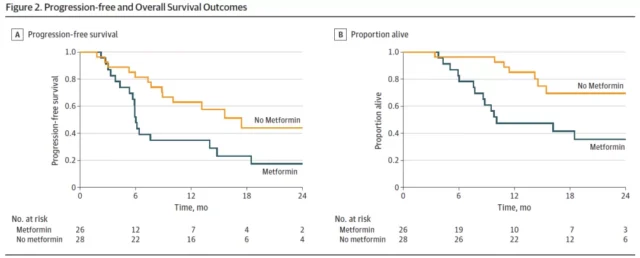Combination of Metformin for advanced lung cancer accelerates the death?
- Normal Liver Cells Found to Promote Cancer Metastasis to the Liver
- Nearly 80% Complete Remission: Breakthrough in ADC Anti-Tumor Treatment
- Vaccination Against Common Diseases May Prevent Dementia!
- New Alzheimer’s Disease (AD) Diagnosis and Staging Criteria
- Breakthrough in Alzheimer’s Disease: New Nasal Spray Halts Cognitive Decline by Targeting Toxic Protein
- Can the Tap Water at the Paris Olympics be Drunk Directly?
Combination of Metformin for advanced lung cancer accelerates the death?
- Should China be held legally responsible for the US’s $18 trillion COVID losses?
- CT Radiation Exposure Linked to Blood Cancer in Children and Adolescents
- FDA has mandated a top-level black box warning for all marketed CAR-T therapies
- Can people with high blood pressure eat peanuts?
- What is the difference between dopamine and dobutamine?
- How long can the patient live after heart stent surgery?
Combination of Metformin for advanced lung cancer accelerates the death?
JAMA Oncology: Combination of Metformin in the treatment of advanced lung cancer accelerates the death of patients.
Metformin has the effect of lowering blood sugar by inhibiting the production of glucose in the liver. It is a first-line drug for the treatment of type 2 diabetes and one of the most commonly prescribed drugs in the world.
There are hundreds of millions of people taking Metformin worldwide.
As an old drug, people ‘s research on Metformin has never stopped, and the research enthusiasm is also increasing. Metformin always refreshes our understanding of it, and continues to bring people one surprise after another.
In recent years, many studies have shown that in addition to lowering blood sugar, Metformin also has the effect of weight loss . Many pre-clinical and clinical studies have also observed that Metformin has beneficial effects in anti-aging , treatment of cognitive impairment , cancer , and cardiovascular diseases . Therefore, Metformin is also known as the ” magic drug “.
Lung cancer is currently the world’s second most common cancer with the second largest incidence and the largest number of deaths. Among them, non-small cell lung cancer ( NSCLC ) accounts for about 85% of all lung cancer cases, and it is often found at an advanced stage.
Combination of radiotherapy and chemotherapy is the standard treatment for non-small cell lung cancer, but the 5-year survival rate is still very poor, only between 23% and 32%.
In preclinical studies of non-small cell lung cancer, it was found that Metformin can activate the AMPK pathway, induce p53, inhibit the target of rapamycin and tumor growth, and enhance the response of tumor cells to radiotherapy and chemotherapy. And there is clinical evidence that Metformin can improve the survival rate of advanced non-small cell lung cancer patients with diabetes.
So, can adding Metformin as concurrent therapy and consolidation therapy to chemotherapy and radiotherapy improve the prognosis of patients with advanced non-small cell lung cancer without diabetes?
In July 2021, JAMA Oncology published a clinical trial paper titled: Metformin in Combination With Chemoradiotherapy in Locally Advanced Non-Small Cell Lung Cancer: The OCOG-ALMERA Randomized Clinical Trial .
The results of this randomized clinical trial show that, compared with standard radiotherapy and chemotherapy, adding Metformin to radiotherapy and chemotherapy will lead to worse therapeutic effects and toxic side effects .
Therefore, the author of the paper said that for locally advanced non-small cells suitable for radiotherapy and chemotherapy For lung cancer patients, Metformin is not recommended .

In the past 2020 years, the worldwide total of 9.96 million people died of cancer, in which the deaths of up to 1.8 million of lung cancer , accounting for 18% of all cancer deaths, far ahead of other cancers.

The top ten cancer types with the number of cancer deaths in 2020, source: WHO
A research team from McMaster University in Canada led the clinical trial of Metformin combined with radiotherapy and chemotherapy for the treatment of advanced non-small cell lung cancer.
Based on previous research, the research team hypothesized that Metformin may improve the prognosis of patients with non-diabetic advanced non-small cell lung cancer, and provide a safe and economical adjuvant treatment for radiotherapy and chemotherapy.
The research team randomly assigned 54 eligible, unresectable, locally advanced non-small cell lung cancer (LA-NSCLC) patients without diabetes , 26 received Metformin combination therapy, and 28 received standard therapies.

Within 1 year of treatment, 18 patients (69.2%) in the Metformin group had failed treatment, while 12 patients (42.9%) in the control group had failed treatment.
The 1-year progression-free survival rate of the Metformin group was 34.8%, and that of the control group was 63.0%. The overall survival rate of the Metformin group was 47.4% and that of the control group was 85.2%. Moreover, the incidence of at least one grade 3 or above adverse event in the Metformin group was higher than that in the control group (53.8% vs 25.0%) .

In general, the results of this randomized clinical trial show that compared with standard chemotherapy and radiotherapy, the addition of Metformin to chemotherapy and radiotherapy will lead to worse treatment effects and toxic side effects .
Therefore, the author of the paper stated that it is suitable for radiotherapy and chemotherapy. For patients with locally advanced non-small cell lung cancer, Metformin is not recommended.
Paper link:
https://jamanetwork.com/journals/jamaoncology/article-abstract/2782110
(source:internet, reference only)
Disclaimer of medicaltrend.org
Important Note: The information provided is for informational purposes only and should not be considered as medical advice.



